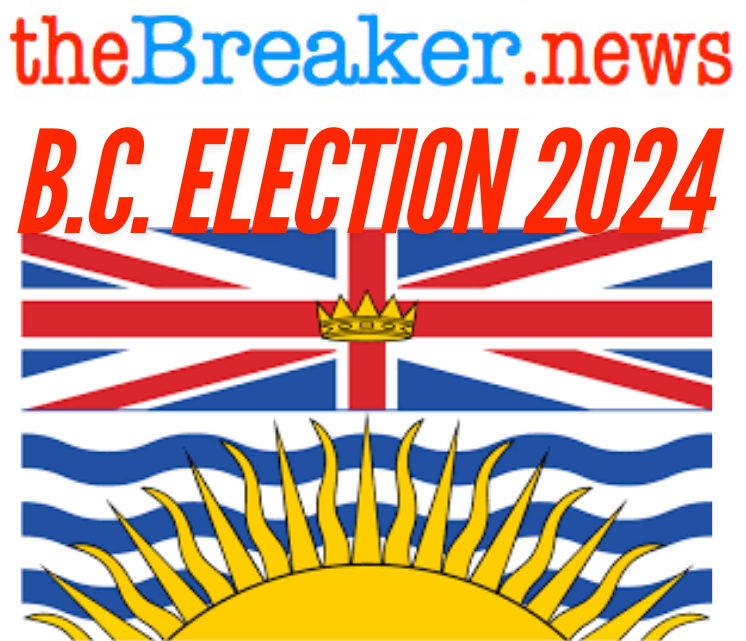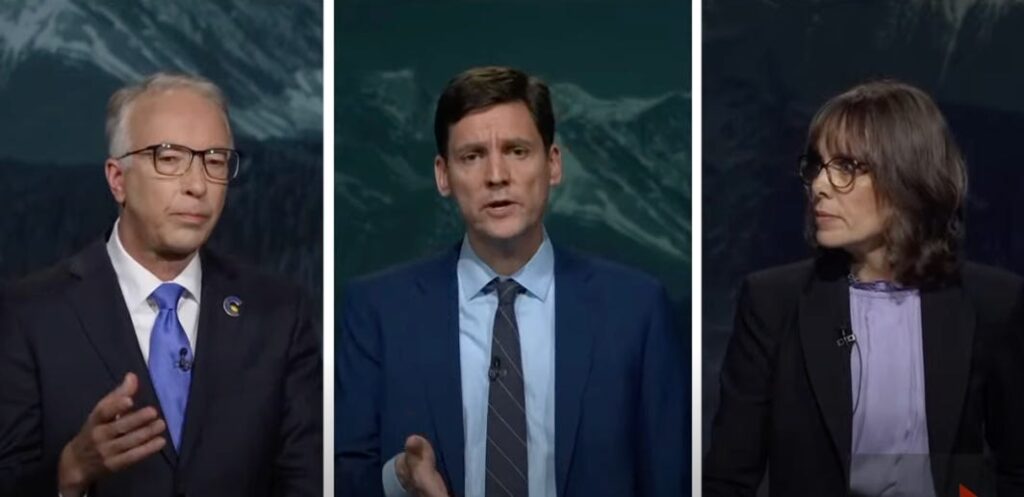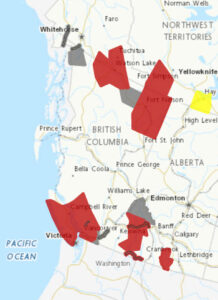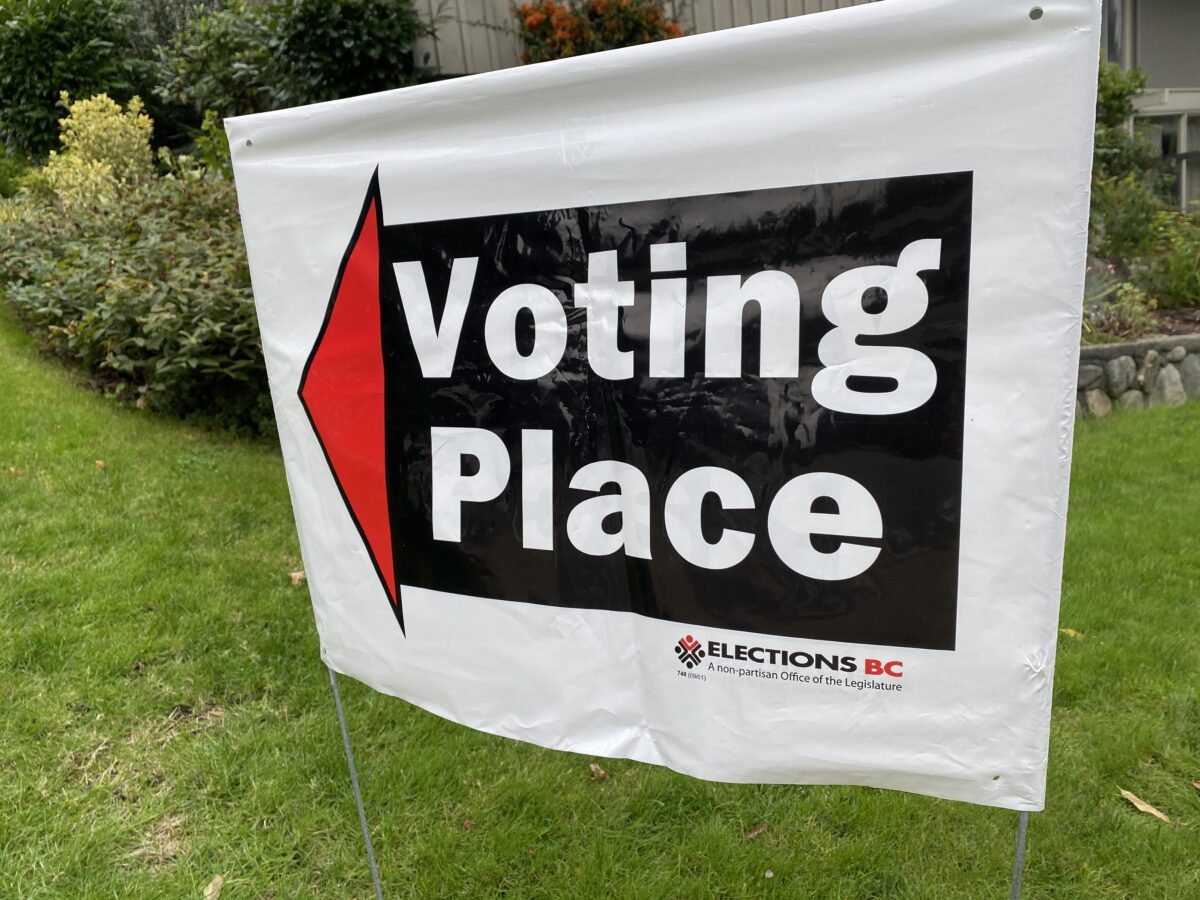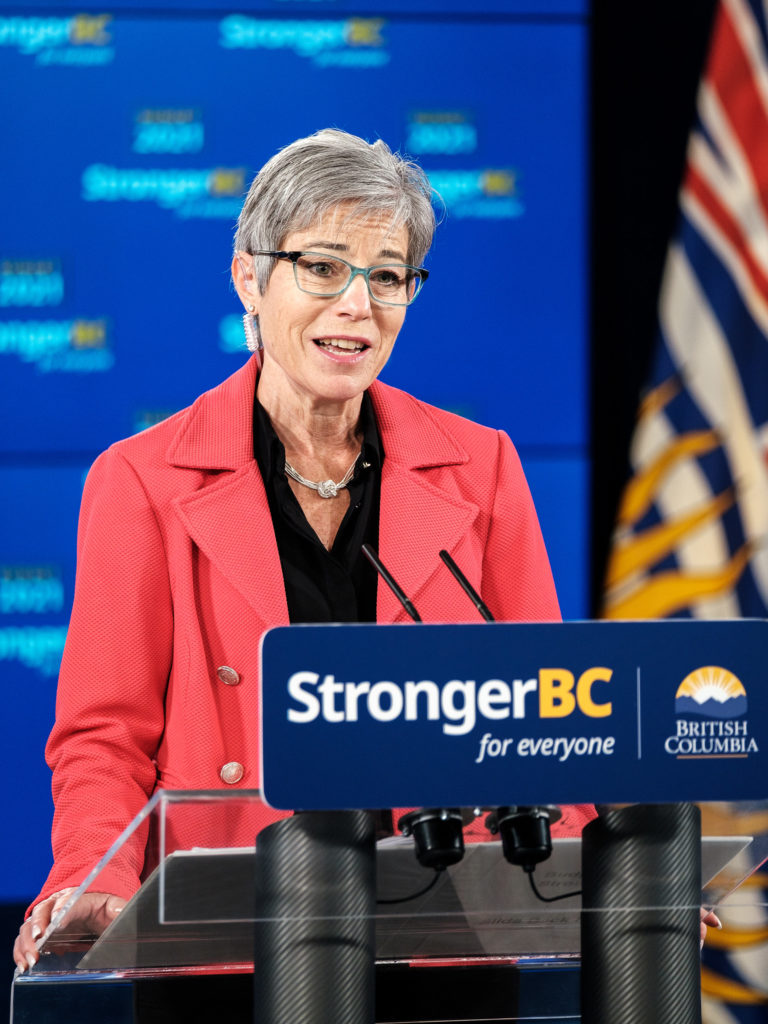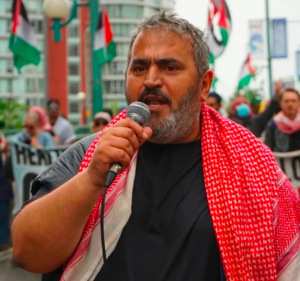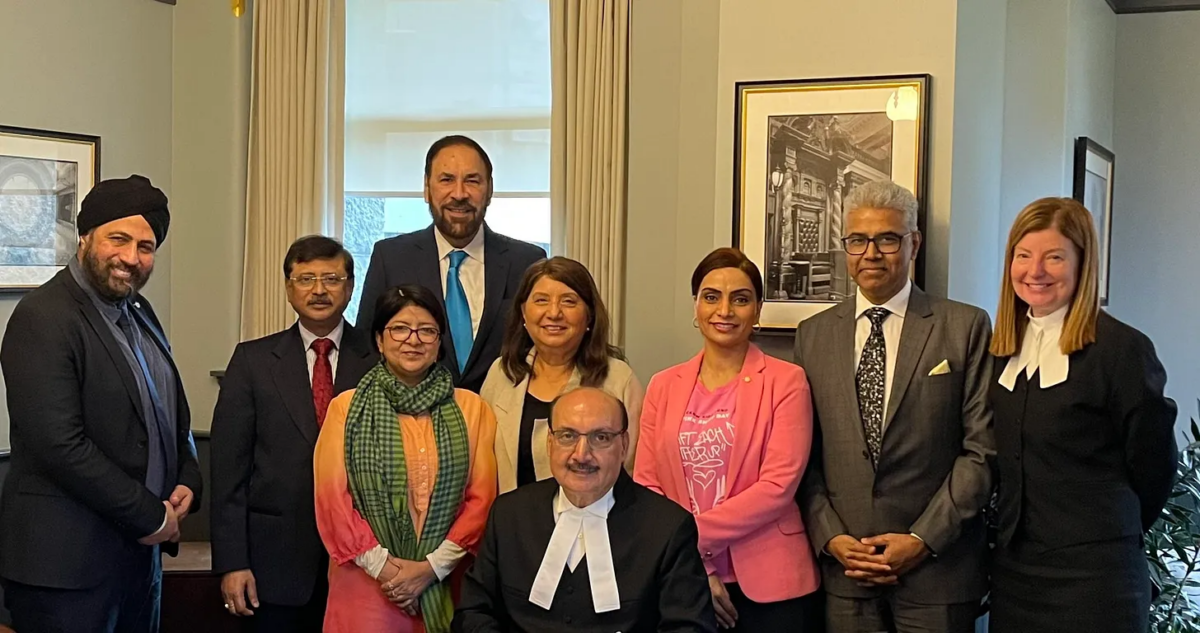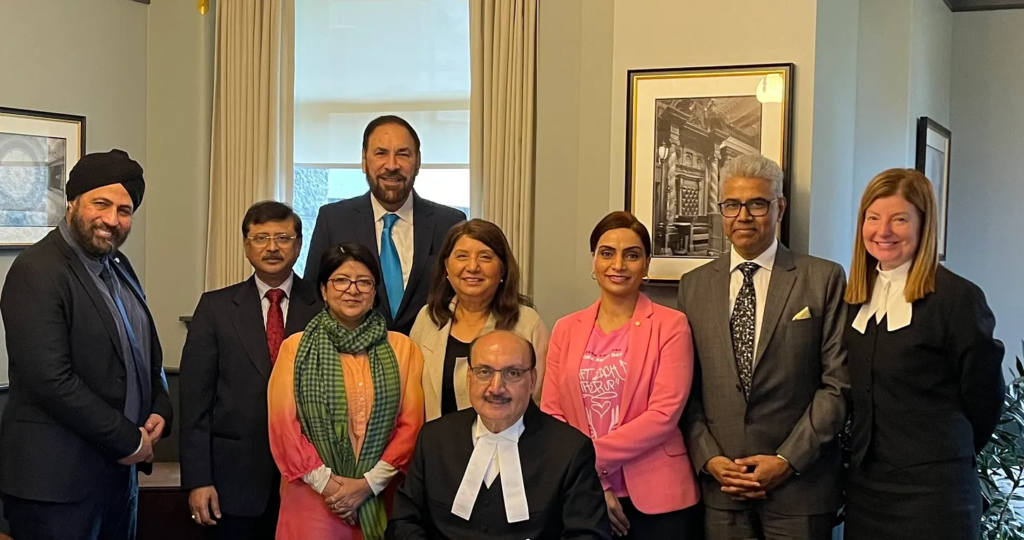Bob Mackin
When did the campaign really start?
We know Oct. 19 is the final voting day.
But when did the 43rd election really start?
On Sept. 21, Lt. Gov. Janet Austin met with the Chief Electoral Officer Anton Boegman to sign the writs and dissolve the 42nd Parliament. Premier David Eby did not visit Government House that day — he kicked off the campaign a day earlier in Surrey.
Amanda Campbell, Austin’s director of communications, told theBreaker.news that Eby formally made the request to the King’s representative on Sept. 19.
That was the same day that Eby told the Union of B.C. Municipalities convention in Vancouver “We’re on the campaign trail in two days.”
He did not wait two days. He embarked on the campaign trail the never next day in the Surrey-Serpentine River riding.
Ravi Kahlon’s future
If the NDP returns to power, and Ravi Kahlon is re-elected in Delta North, does he remain the Minister of Housing?
Conservative leader John Rustad and Surrey Cloverdale candidate Elenore Sturko accused him of potential conflict of interest more than once.
Sister Parm Kahlon is a partner in the new Core Firm with fellow NDP stalwarts Nikki Hill and Opreet Kang. One of their clients is Renewal Developments, which repurposes and relocates single-family houses. Brother Sunny Kahlon owns Victoria homebuilder Kahlon Developments.
A week into the campaign, Rustad wrote an open letter to Eby, asking for him to “publicly support and endorse an immediate investigation into Ravi Kahlon and provide full disclosure on whether Minister Kahlon has recused himself from decisions that may impact his family’s business interests.”
Ravi Kahlon called the allegations “false and desperate.” Parm Kahlon said the work for Renewal “did not involve government relations or interactions with the government.” Sunny Kahlon did not respond.
During the last pre-election Question Period on May 16, Rustad challenged the Housing Minister about a series of real estate deals involving three Prince George properties sold to B.C. Housing. Two of which involved Tapinder Singh Banipal of Kamloops and Tejinder Singh Khatrao of Prince George.
Knights Inn, bought for $1.1 million, sold to BC Housing for $4.1 million; North Star Inn, bought for $3.25 million, sold for $10.5 million to BC Housing; Lotus Hotel, bought for $700,000 sold for $2 million to BC Housing.
“This not only looks bad; it does not pass the smell test,” Rustad said, challenging Eby to commit to a forensic audit.
Kahlon rose to respond and said rules were followed and the purchases were urgently needed to deal with homelessness.
“The previous government, when the member was part of the BC Liberal government, did the same thing — which is good; it should be commended,” Kahlon said.
Blue-to-orange switcher

Premier David Eby (left) and Kareem Allam (X/Mike Witherly)
Kareem Allam is the federal Conservative behind Kevin Falcon’s 2022 BC Liberal leadership win and Ken Sim’s 2022 ABC Vancouver mayoral victory.
Instead of endorsing Rustad’s Conservatives, Allam said he signed up for an NDP membership, voted NDP and joined the Terry Yung campaign team in Yaletown, his home riding.
On Oct. 17, he appeared between Yung (husband of ABC Coun. Sarah Kirby-Yung) and Eby and delivered a rousing speech at Yung’s campaign office.
Yung’s Conservative opponent happens to be former NPA Coun. Melissa De Genova, who went to work at Allam’s Fairview Strategy after losing in the 2022 civic election.
Like 2024 provincially, affordable housing was top-of-mind in 2022. Last year, Allam called it an issue that the public generally views as “not solvable.”
“You can’t win an election on housing affordability, you can lose one if you don’t have a good plan, and can’t show good progress — but you can’t win an election on these issues,” Allam said during an April 24, 2023 online forum via the University of California Berkeley’s Citrin Center for Public Opinion Research. “So we never saw this as something that we had to do to win the election, we just had to come up with a good, sound approach to this to show that we were going to be able to make progress on it.”
Sinclair’s antisemitic “something”
The NDP spent several days late in the campaign doggedly prosecuting years-old, offensive Facebook posts by actor Brent Chapman, the Conservative Surrey South candidate and husband of Conservative MP Kerry-Lynne Findlay. Rustad refused calls to force Chapman to quit.
Meanwhile, Sturko noticed something on the Facebook account of Jim Sinclair, the NDP-appointed chair of Fraser Health Authority.
The something was Sinclair’s reposting of a graphic that quoted Hebrew University professor Nurit Peled-Elhanan: “Israel has reached an unimaginable peak of evil,” it said.
The post also accused Israel of “pure colonial nationalist and chauvinistic racism.” It said nothing about the terrorists who triggered the Israel-Hamas war, by killing 1,200 innocents and kidnapping 240 others on Oct. 7, 2023.
“Adrian Dix’s handpicked board chair of Fraser Health has shared antisemitic posts, which create an unsafe environment for Jewish patients and employees,” Sturko posted.
The date? Oct. 13, less than a week after the anniversary of the October 7 massacre.
Sinclair deleted the graphic on Oct. 14 and wrote:. “I shared something yesterday I should not have. I apologize.”
Did Sinclair post anything else about the Israel-Hamas war? Either he took a break from Facebook for all of 2023 or he deleted those, too.
Sinclair has not responded for comment.
Sinclair’s name is connected to $1.4 million in donations to the NDP since 2005, mostly during his 1999 to 2015 time as head of the B.C. Federation of Labour, when there was no limit on donations from unions.
Burma Block
One of Rustad’s last tour stops on the final campaign day was the Dundarave office of West Vancouver-Capilano Conservative Lynne Block.
Independent ex-BC United MLA Karin Kirkpatrick and her team showed up with signs. Block’s supporters grabbed theirs and hurried to the sidewalk. Some even jumped on the street. One of the Conservatives was Caroline Elliott, who had been the heir apparent to Kirkpatrick.
Elliott’s brother-in-law, Kevin Falcon, pulled BC United out of the race in August and endorsed the Rustad Conservatives. Kirkpatrick, a federal Liberal, unretired in order to seek another term as an independent “centrist.”
Kirkpatrick came to Dundarave with her top endorser and predecessor, the five-time-elected Ralph Sultan.
In 2001, Sultan defeated six challengers in a hotly contested nomination to run for the Gordon Campbell-led BC Liberals.
Peek in the files

Former BC Liberal MLA Ralph Sultan, sandwiched Oct. 18 by Caroline Elliott (left) and Colin Metcalfe.
All 323 candidates across the 93 ridings in the Oct. 19 election were required to provide a stack of documents to Elections BC in order to get their names on the ballots.
Nomination application, statement of disclosure, list of nominators, and appointments of auditor, official agent and financial agent, to be precise.
They are all public documents available for inspection at Elections BC offices. Though, they are subject to opt-out clauses so as to protect personal information, such as residential addresses and phone numbers. That makes it harder for a reporter to determine whether, for instance, a candidate lives in a house owned by a party donor. (That was the case in 2017 for then-BC Liberal Premier Christy Clark.)
On his disclosure form, Eby lists no real property or assets. He disclosed unspecified liabilities with CIBC and Scotiabank.
Rustad reported interest in four properties around Prince George. But no assets or liabilities.
Green leader Sonia Furstenau reports a charming, secondary house in Shawnigan Lake, assessed at almost $1.4 million. (Though, it is not lakefront property). She said she has no assets or liabilities.
Eby’s nominators include Leonard Schein, the Vancouver International Film Festival founder and independent cinema owner appointed by the NDP to the University of B.C. board of governors. That’s Schein’s face over Eby’s left shoulder in the group photo on the side of the NDP campaign bus.
Someone on Eby’s campaign team — maybe it was Eby himself — has a sense of humour.
The name of nominator Christa Eggens is followed by that of Eby constituency assistant Summer Bacon and three other folks named Bacon.
Follow @theBreakernews on Twitter for election night news.
Support theBreaker.news for as low as $2 a month on Patreon. Find out how. Click here.
Bob Mackin
When did the campaign really start?
We







